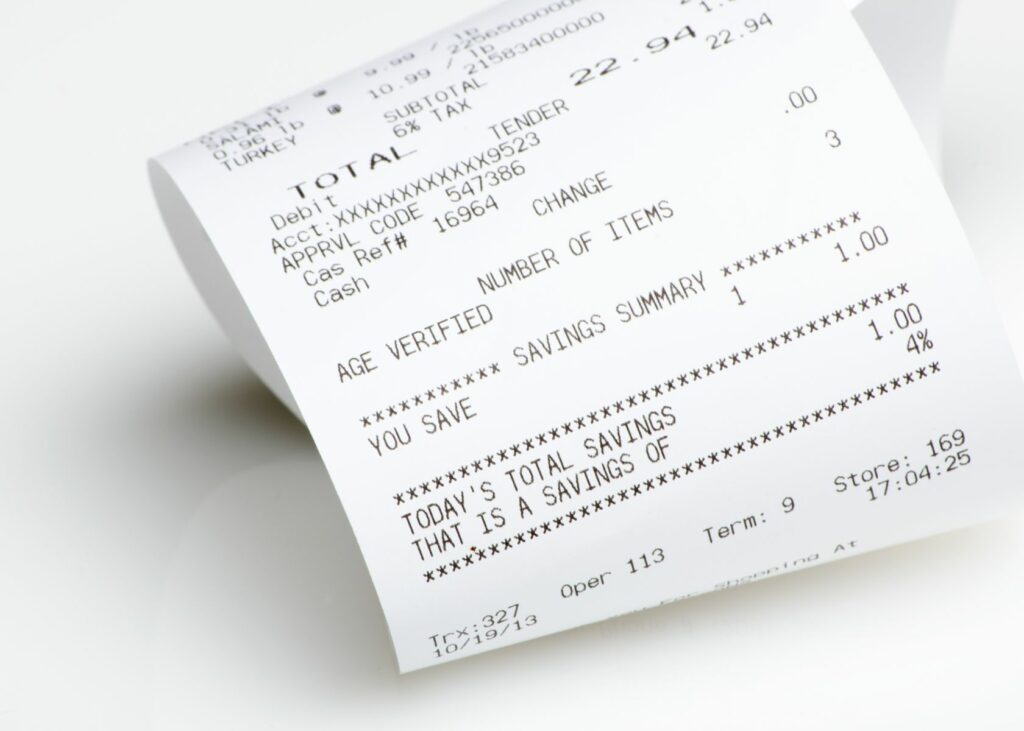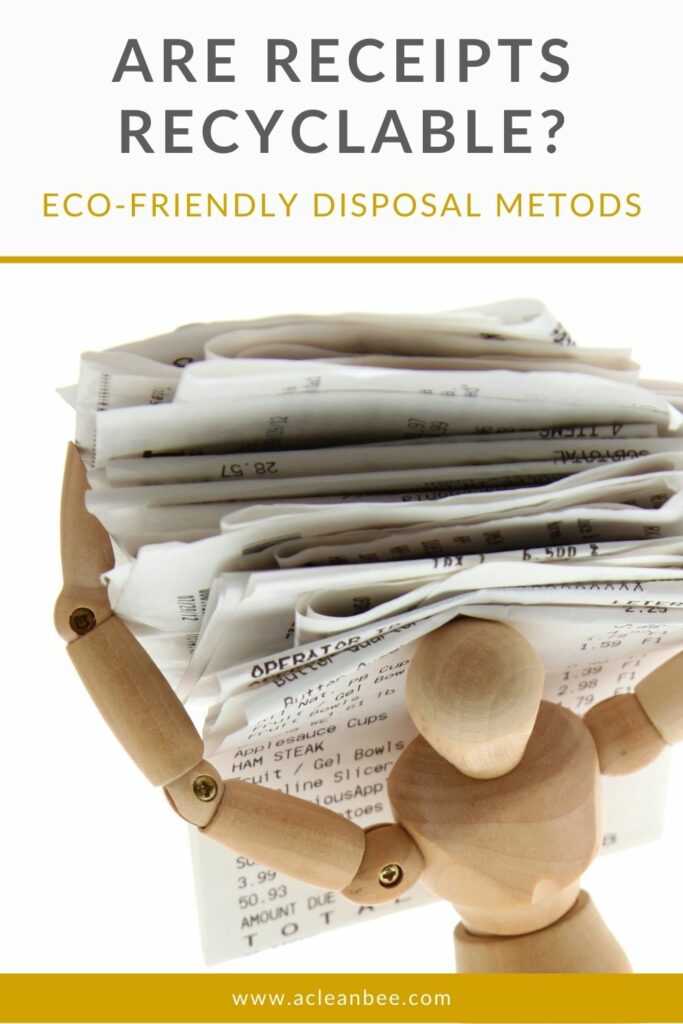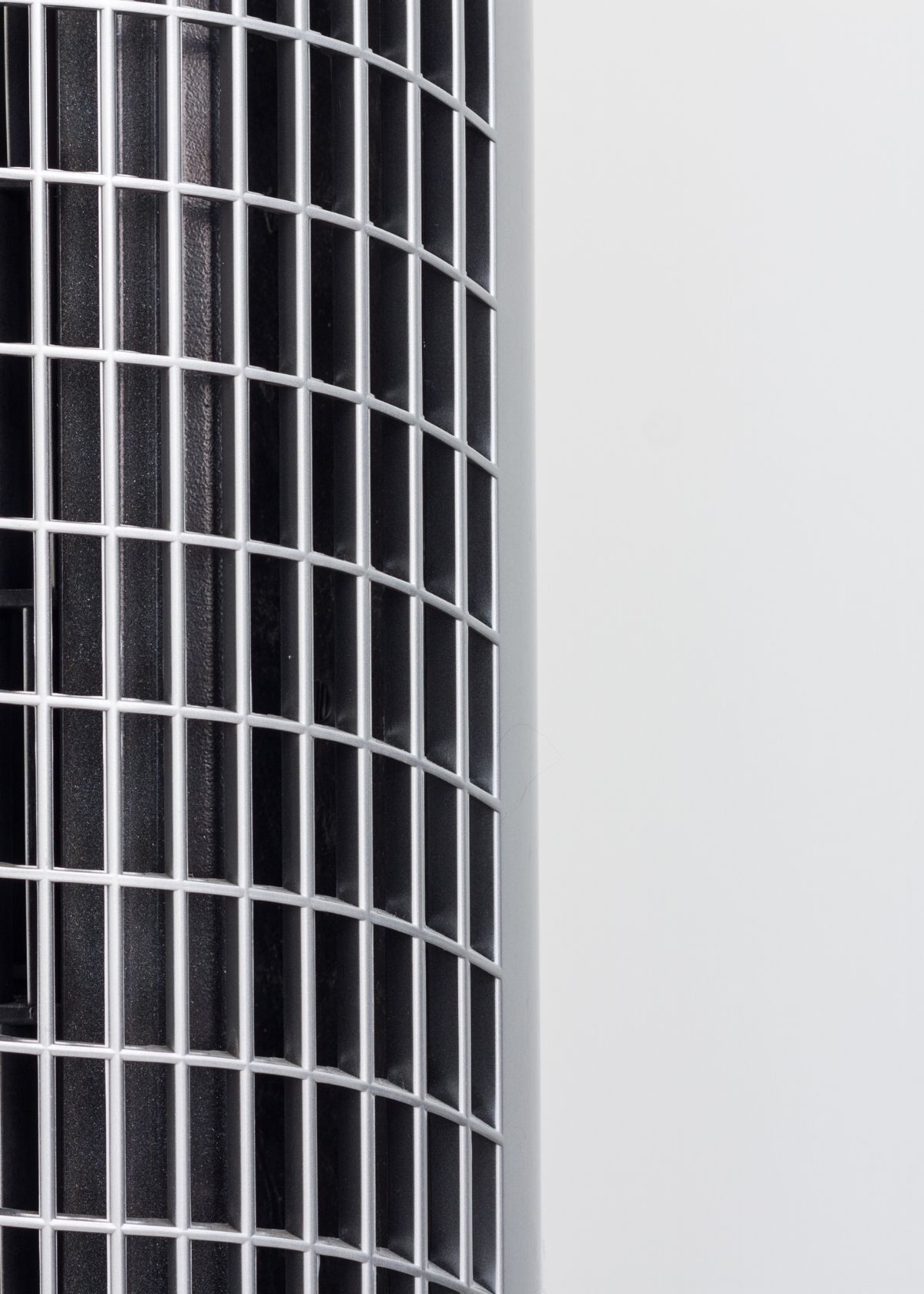Are Receipts Recyclable?
Have you ever wondered whether receipts are recyclable? You’re not alone! Receipts are everywhere – from the general store to the gas station. In this article, we’ll explore whether receipts can be recycled, the health and environmental impacts of receipts made from thermal paper, and how to dispose of receipts to help keep our communities clean and healthy.
Quick Navigation
Are Receipts Recyclable?
The short answer is that it depends, but in general, no.
Most receipts are made of thermal paper which use ‘leuco dyes.’ When leuco dyes are exposed to heat in the receipt printer machine, they react with industrial chemicals called Bisphenol A (BPA) and/or Bisphenol S (BPS).
These chemicals are harmful to the environment and human health. If receipts contain these chemicals, they absolutely cannot and must not be recycled as they can contaminate recycling waste streams (Source: Simply Waste Solutions).
The easiest way to check if your receipt has been printed on thermal paper is the “fingernail test,” where you scratch the receipt with your fingernail. If it leaves a black mark, then it is printed on thermal paper. Here are a few more methods to check whether a receipt has been printed on thermal paper and may contain BPA/BPS.
However, if you are ever not sure, it is always best to err on the side of caution and dispose of your receipt within the general waste. If you do decide to recycle your receipts after checking they do not contain BPA/BPS, make sure to remove any staples or tape and check with your local recycling program to see if they accept them.
Related: Receipt Makeover: Using Recyclable Paper – American Chemical Society
What are Bisphenol A (BPA) and Bisphenol S (BPS)?
Bisphenol A (BPA) and Bisphenol S (BPA) are commonly used in the manufacturing of plastics. They are also used as a coating for thermal paper and help create the receipt images when heated.
According to vom Saal and Vanderberg (2021), research has shown that these chemicals are endocrine disruptors. If disposed of improperly, they can leach into the environment, contaminate water and soil, and harm local wildlife.
Health and Environmental Impact of Thermal Paper
The thermal paper used for receipts contains BPA, a chemical linked to various health problems, including reproductive disorders and cancer (Source: Gao et al, 2015).
When thermal paper is recycled, the BPA can leach into the environment and harm wildlife and ecosystems. In addition to BPA, some receipts are also printed on glossy paper or contain non-paper materials like plastic or foil, which cannot be recycled and can cause harm to the environment.
In the video above, Dr. Shelton explains how harmful thermal receipts are to human health. Dr. Shelton says: “For every 12 inches of thermal paper receipt, when you’re touching it, you can receive a dose of 3 to 20 milligrams of toxic BPA. Some counties in the United States have banned thermal receipts for that reason.” Dr. Shelton goes on to advise to “wash your hands immediately after exposure to these receipts due to the health effects that BPAs can cause.”
How to Properly Dispose of BPA/BPS-Free Receipts
Here are some suggestions to get a second use of your BPA and BPS free receipt paper.
Packing Material
One option is to shred your receipts and use them as packing material when shipping items. This is especially great if you are selling second-hand items on eBay!
Compost
You can compost your receipts if they are printed on paper that does not contain BPA or BPS. However, it’s important to note that receipts from stores and restaurants may contain ink that is not compostable, so it’s best to check before adding them to your compost pile. The same sentiment is true if you hope to mix them with your vermicomposting.
Related: The Complete Guide to Composting Paper Plates
Recycle
You can recycle receipts that are not printed on thermal paper. Be sure to remove any tape or staples, and always check your local recycling program!
How to Properly Dispose of BPA/BPS Receipts
There is only one method to dispose of receipt paper that contains BPA or BPS. Unfortunately, this is disposal. If your receipts are printed on thermal paper, please collect them in a paper envelope before disposing of them in your general waste. This is important to limit exposure to BPA/BPS as Dr. Shelton advises in the video above.
Consider Swapping to Digital Receipts
With the advent of online shopping, receiving a receipt printed on thermal paper is rare, except when shopping in-store. However, fear not, as many stores offer digital receipts these days.
The next time you shop in-store and are asked, “would you like a receipt?” let the cashier know that you’d prefer a digital receipt, and they’ll often be happy to accommodate. In addition to being free of chemicals, digital receipts are also more secure than paper receipts and harder to lose!
So, the next time you’re at the store, consider opting for a digital receipt. It’s a small change that can make a big difference for the environment* and help keep your wallet or purse clutter-free.
*Editor’s note: digital receipts still have an environmental impact. Every email sent can generate 0.3g of CO2e, it’s not a huge amount, but it can quickly add up, so only keep what you need if you need it! (Source: Mike Berners-Lee and PawPrint).
FAQs
It depends on what your receipts are made out of. If they are thermal receipts, absolutely not as this will contaminate compost. If they are thermal paper-free, or are printed on plain paper, go ahead!
The main difference between biodegradable and compostable is that composting adds nutrients to the soil, known as ‘hummus’, and biodegradable items will break down but not necessarily add any additional nutrients to the soil.
The general rule of thumb is that all compostable materials are biodegradable, but not all biodegradable materials are compostable. While biodegradable materials will break down eventually, they may leave behind harmful residues that contaminate the soil. It is therefore advised not to put thermal receipt paper in your composter.
BPA has been a known issue for a long time, even as far back as 2012, where Suffolk County, New York, on Long Island banned BPA receipts (Source: EWG). Not all countries use BPA or BPS in their receipt paper.
In 2020, Switzerland was the first country to ban the use of BPA and BPS in thermal paper (Source: Chemical Watch). The EU has also banned BPA thermal paper, just not BPS yet (Source: Chemical Watch). Many countries are yet to follow suit. An article from Naturaler gives a snippet into which countries have a ban in place and the legislation surrounding the use of BPA and BPS.








